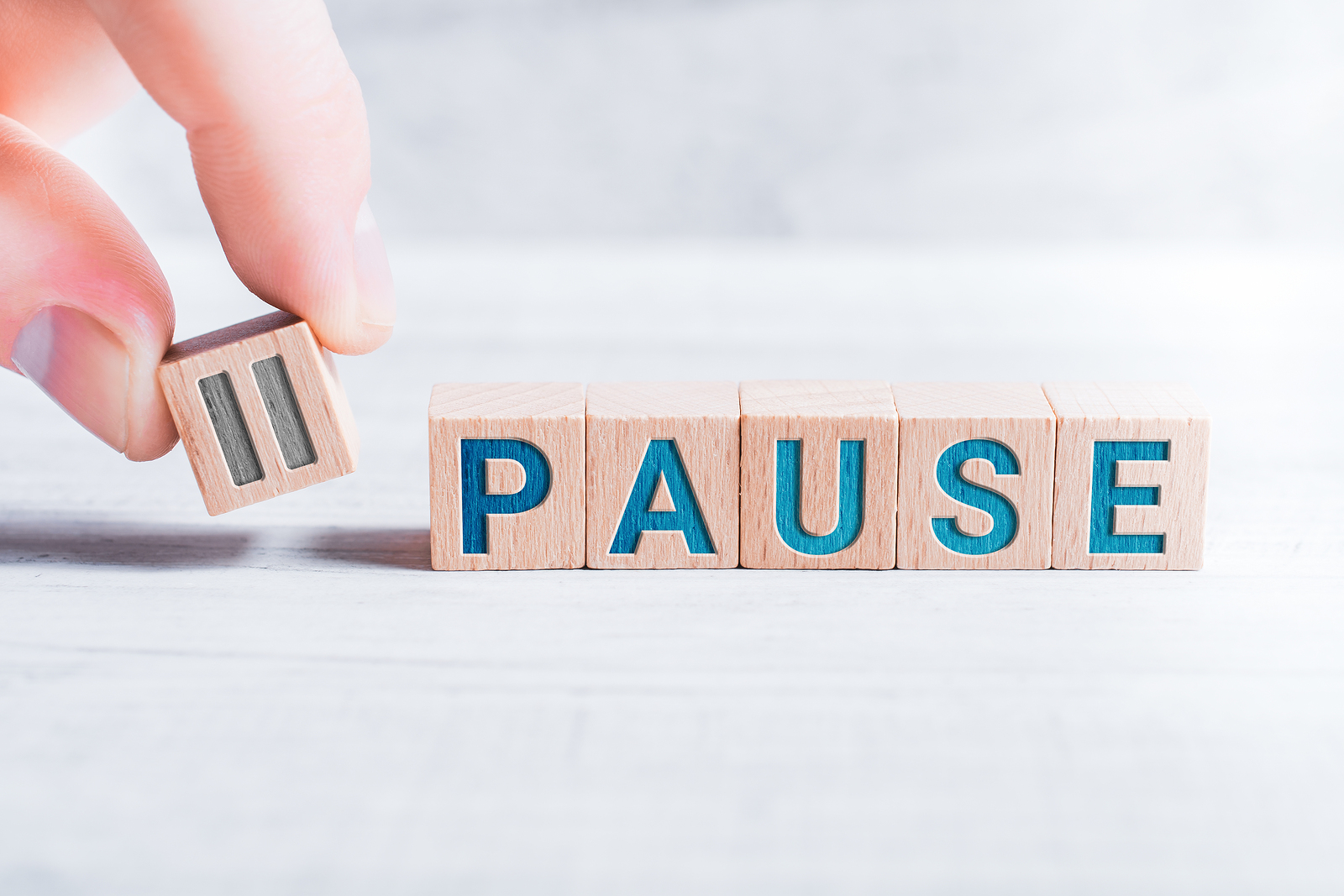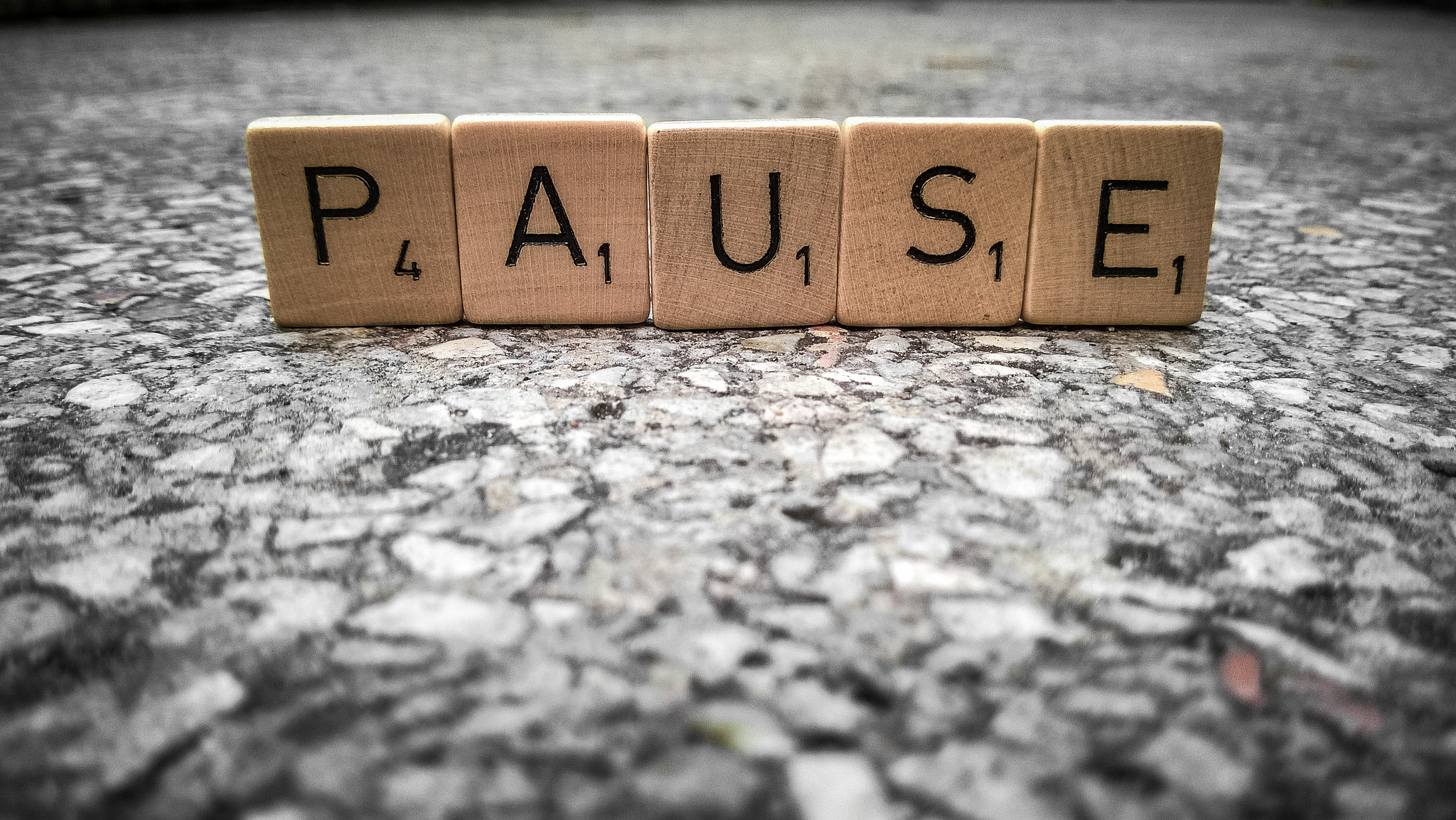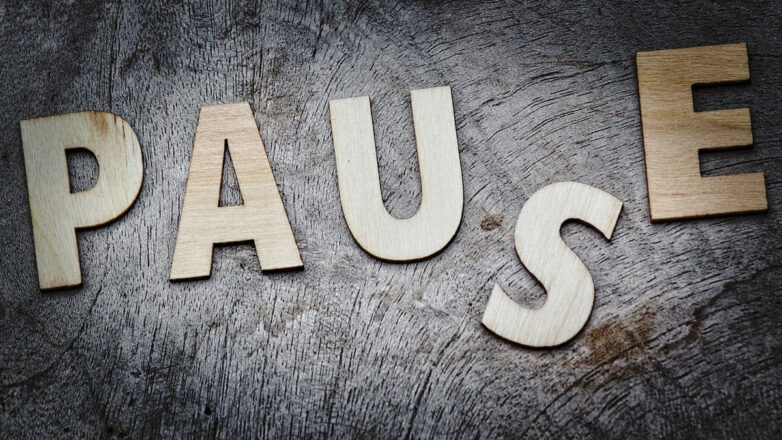Life, you know, can feel like a speeding train sometimes, just rushing along without much of a break. We often find ourselves caught up in the constant push, moving from one thing to the next, with very little room to simply stand still. It's almost as if the world expects us to keep going, always, without a moment to catch our breath. But what if there was a simple way to introduce a little bit of calm into all that motion? What if taking a short break, a momentary halt, could actually make things better, not worse?
This idea of taking a moment, a short stop in your day, is what we're looking at with something we might call a personal pause challenge. It's not about stopping everything for good, not at all. It's more about choosing to create little gaps in your day, small pockets of quiet. Think of it like this: your day is a long sentence, and these pauses are like the commas or periods that give it shape and make it easier to read. They allow for a little bit of space, a chance for things to settle, really.
The core of this idea comes from something pretty basic: what a pause actually is. It's a temporary stop, a brief period where an activity or a sound stops before it starts up again. It's that short moment when you might stop doing something before you pick it back up. Like when a speaker stops talking for a second to let a thought sink in, or when you take a short rest from a task. It's a short break, a momentary quiet, and it can be a surprisingly helpful thing to bring into your daily goings-on, you know.
Table of Contents
- What Does It Mean to Hit the Pause Button?
- Why Consider a Personal Pause Challenge?
- How Can We Practice the Pause Challenge?
- What Happens When We Take a Short Break?
- The Impact of a Momentary Pause Challenge
- Everyday Opportunities for a Pause Challenge
- Sticking with Your Pause Challenge
- A Final Look at the Pause Challenge
What Does It Mean to Hit the Pause Button?
When we talk about hitting the pause button, it's really about taking a brief stop. It’s like when you’re watching a show and you just press that button to freeze the picture for a second. The action stops, but it’s not over. It’s just on hold. That's pretty much what a pause is in our daily goings-on. It’s a short period when you stop doing something before you pick it up again. It could be a sound that stops for a moment, or an activity that halts for a short time before it starts again. It’s a temporary quiet, a little bit of a breather in the middle of everything, you know.
Think about it: the meaning of a pause is simply a temporary stop. It’s not a full stop, not an ending. It’s a short break, a little rest. Like when a speaker takes a short period of quiet during their talk so that everyone can, say, get some coffee. That’s a pause. Or when someone stops at the edge of a pool for a moment before getting in. That’s a pause too. It's a momentary quiet, a chance to simply be still for a bit. This kind of stopping is often about giving yourself a chance to regroup, to get your thoughts together, or just to let your mind settle down, in a way.
The idea of a pause also carries with it the sense of a break, a halt in a process or a series of things happening. It’s often used so someone can think about things, or maybe look at the situation again. Like, when you're in the middle of something, and you just stop for a second to consider what's next. That's a pause. It's a short break, a little bit of quiet, and it can be quite helpful. It's not about stopping forever, just for a little while, so you can come back to things with a fresher outlook, you see. So, basically, it's a chosen quiet moment.
Why Consider a Personal Pause Challenge?
You might wonder why someone would want to take on a personal pause challenge. Well, think about how busy our lives tend to be. We're often rushing from one task to the next, with barely a moment to breathe. This constant motion can leave us feeling a bit worn out, or maybe even a little bit scattered. Taking a short break, a momentary halt, can actually help us feel more put together. It gives us a chance to simply step back from the flow of things, even if just for a second. It's a way to give your mind and body a little rest, which can make a real difference, honestly.
A personal pause challenge is about giving yourself permission to stop, even when everything around you seems to be moving. It’s about creating a short period of quiet, a temporary stop in your activities. This can help you to think more clearly, or to just feel a little bit calmer. When you stop for a moment, it’s like hitting a reset button. You get a chance to let go of any tension that might have built up, and to simply be present in that short break. It's a way to make sure you're not just reacting to everything, but actually choosing how you want to move forward, you know.
Furthermore, taking these short breaks, these moments of quiet, can help you to see things from a different angle. When you're constantly in motion, it's easy to miss things, or to feel overwhelmed. But a pause, even a very short one, gives you a chance to simply look around, to notice what's happening, or to think about what you're doing. It’s a short rest that can bring a lot of good. It's about being more mindful, more aware, and that can lead to feeling more settled and in control of your day. It’s a pretty simple idea, but it can be quite powerful, really, this personal pause challenge.
How Can We Practice the Pause Challenge?
So, how do you actually go about practicing this pause challenge? It's simpler than you might think. The key is to find small, short periods in your day where you can just stop. It doesn't have to be a long time, even a few seconds can make a difference. For example, before you answer the phone, you might take a short breath. Or before you send that email, you could just stop for a moment to read it over one last time. These are all little pauses, temporary stops that give you a chance to be more thoughtful in your actions, you know.
Another way to practice the pause challenge is to use the idea of a short break during speaking or reading. You can use punctuation in writing to show where a pause should be, to make the meaning clearer. In your daily life, you can do something similar. Before you speak, you could just take a short breath, a momentary quiet. This gives you a chance to think about what you want to say, rather than just blurting things out. It's a short period of quiet that can make your words more considered, which is a good thing, really.
You can also build in deliberate short stops throughout your day. Maybe after you finish one task, before you jump to the next, you just take a short rest. Or when you're walking, you could just stop for a second to look at something interesting around you. These are all ways to practice the pause challenge. It's about making a habit of taking these short breaks, these temporary halts, so they become a natural part of your day. It’s about choosing to insert those quiet moments, basically, and seeing what good comes from them.
What Happens When We Take a Short Break?
When you take a short break, even just for a few seconds, something interesting happens. It's like your mind gets a chance to clear itself, to reset. The constant flow of thoughts and tasks slows down, giving you a bit of space. This temporary stop can help to lessen feelings of being overwhelmed or rushed. It's a momentary quiet that allows your brain to process things, to sort through the information it's been taking in. You might find that after a short pause, you feel a little bit more ready to face what's next, you know.
A short period of quiet, a temporary stop, can also help your body. When you're always on the go, your body can hold onto tension. But taking a pause, even a very brief one, gives your muscles a chance to relax. It’s like a mini-reset for your physical self. You might notice your shoulders dropping a little, or your breath getting a bit deeper. This short rest is a way to let go of some of that physical tightness, which can make you feel more comfortable and at ease. It’s a pretty simple thing, really, but it can have a good effect on how your body feels.
Moreover, these short breaks, these moments of quiet, can help you to be more present in what you're doing. When you're constantly moving, it's easy to be thinking about the next thing, or the thing after that. But a pause brings you back to the here and now. It’s a temporary halt that grounds you in the current moment. You become more aware of your surroundings, of your own thoughts, and of the task at hand. This increased awareness can make your actions more thoughtful and your experiences richer. So, basically, taking a short break helps you to be more fully where you are.
The Impact of a Momentary Pause Challenge
The impact of taking on a momentary pause challenge can be quite significant, even though it seems like such a small thing. When you regularly insert these short breaks, these temporary stops, into your day, you might find that you feel a greater sense of calm. The constant pressure of needing to do things all the time can lessen. It's like you're giving yourself little islands of quiet in a busy stream. This can lead to a feeling of being more in control of your own time and your own reactions, you know.
This practice of a momentary pause challenge can also lead to clearer thinking. When you stop for a second, you give your mind a chance to sort things out. It's like hitting a reset button on your thoughts. This can help you to make better choices, or to come up with new ideas. Instead of just reacting to things, you get a chance to think about them first. This short period of quiet can truly help you to approach situations with a more settled and thoughtful mind, which is a good thing for pretty much everything you do, really.
Furthermore, regularly taking these short rests, these temporary halts, can improve your relationships with others. When you pause before speaking, for example, you give yourself a chance to consider your words. This can lead to more thoughtful and less rushed conversations. It’s like giving yourself a moment to truly hear what someone else is saying, or to think about how your words might land. This momentary pause challenge helps you to be more present and more responsive in your interactions, which can make your connections with people feel stronger and more genuine, basically.
Everyday Opportunities for a Pause Challenge
You might be surprised at how many everyday opportunities there are to take on a pause challenge. It doesn't require setting aside a lot of time or finding a special quiet place. It can happen right in the middle of your usual activities. For example, before you open a new email, you could just take a short breath. Or when you're waiting for water to boil, you could simply stand still for a moment, rather than grabbing your phone. These are all small, temporary stops that fit right into the flow of your day, you know.
Consider the times when you're moving from one place to another. When you walk through a doorway, you could just stop for a second on the threshold. That's a pause. Or when you get into your car, before you start the engine, you could just sit in quiet for a moment. These are little chances to insert a short break, a momentary quiet, into your routine. They're not meant to disrupt your day, but rather to give you tiny pockets of stillness that can help you feel more grounded. It’s a pretty simple way to bring the pause challenge into your life, really.
Even during conversations, there are chances for a pause challenge. When someone finishes speaking, instead of jumping right in with your reply, you could just let a few seconds pass. This short period of quiet allows you to truly take in what was said, and to think about your response. It’s a temporary stop that can make your conversations feel more meaningful and less rushed. It's about creating space, even in the middle of talking, which can make a big difference in how you connect with people, basically.
Sticking with Your Pause Challenge
Sticking with your pause challenge, like any new habit, takes a little bit of effort and remembering. The key is to start small and not to worry if you miss a few opportunities. The goal isn't perfection, but rather to slowly build in more of these short breaks, these temporary stops, into your daily life. You might find it helpful to pick one or two specific times in your day when you know you can reliably take a pause. For instance, every time you stand up from your desk, you could just stop for a second before walking away, you know.
Another way to help yourself stick with the pause challenge is to notice how you feel after you take one of these short rests. Does your mind feel a little clearer? Do you feel a bit more settled? Paying attention to these good feelings can be a strong reason to keep going. It’s like giving yourself a little reward for taking that momentary quiet. This can help to build a positive link in your mind between pausing and feeling better, which makes it easier to remember to do it again, really.
You can also use little reminders to help you with your pause challenge. Maybe a small note on your computer screen, or a gentle alarm on your phone that goes off a few times a day, just to remind you to take a short break. These temporary halts don't have to be long, just a few seconds to breathe and reset. Over time, as you practice, these pauses will start to feel more natural, like a built-in part of your day. It’s about making a gentle effort to bring more quiet into your busy life, and seeing how it helps you, basically.
A Final Look at the Pause Challenge
So, we've talked quite a bit about the idea of a personal pause challenge. It's about bringing more short breaks, more temporary stops, into your daily life. We've looked at what a pause actually means – a brief halt in action, speech, or sound. We've explored why taking these moments of quiet can be helpful, leading to clearer thinking and a greater sense of calm. We've also considered practical ways to practice this, from taking a breath before speaking to simply pausing as you move from one task to the next. The idea is to make these momentary quiet times a regular part of your routine, finding opportunities for a short rest wherever you can. It's about choosing to slow down, even for just a second, to allow for a reset, and to bring a bit more thoughtful presence to your everyday goings-on.



